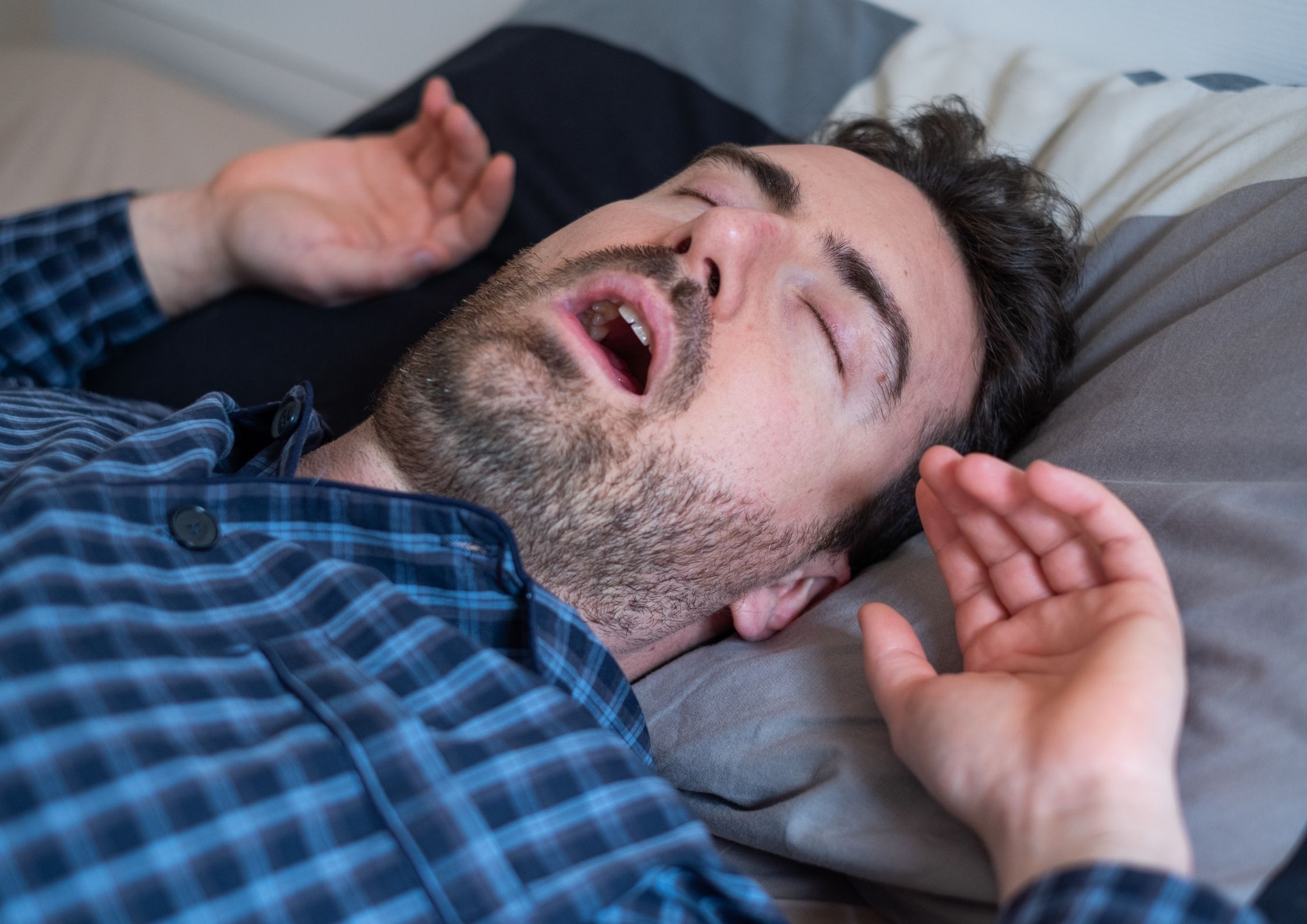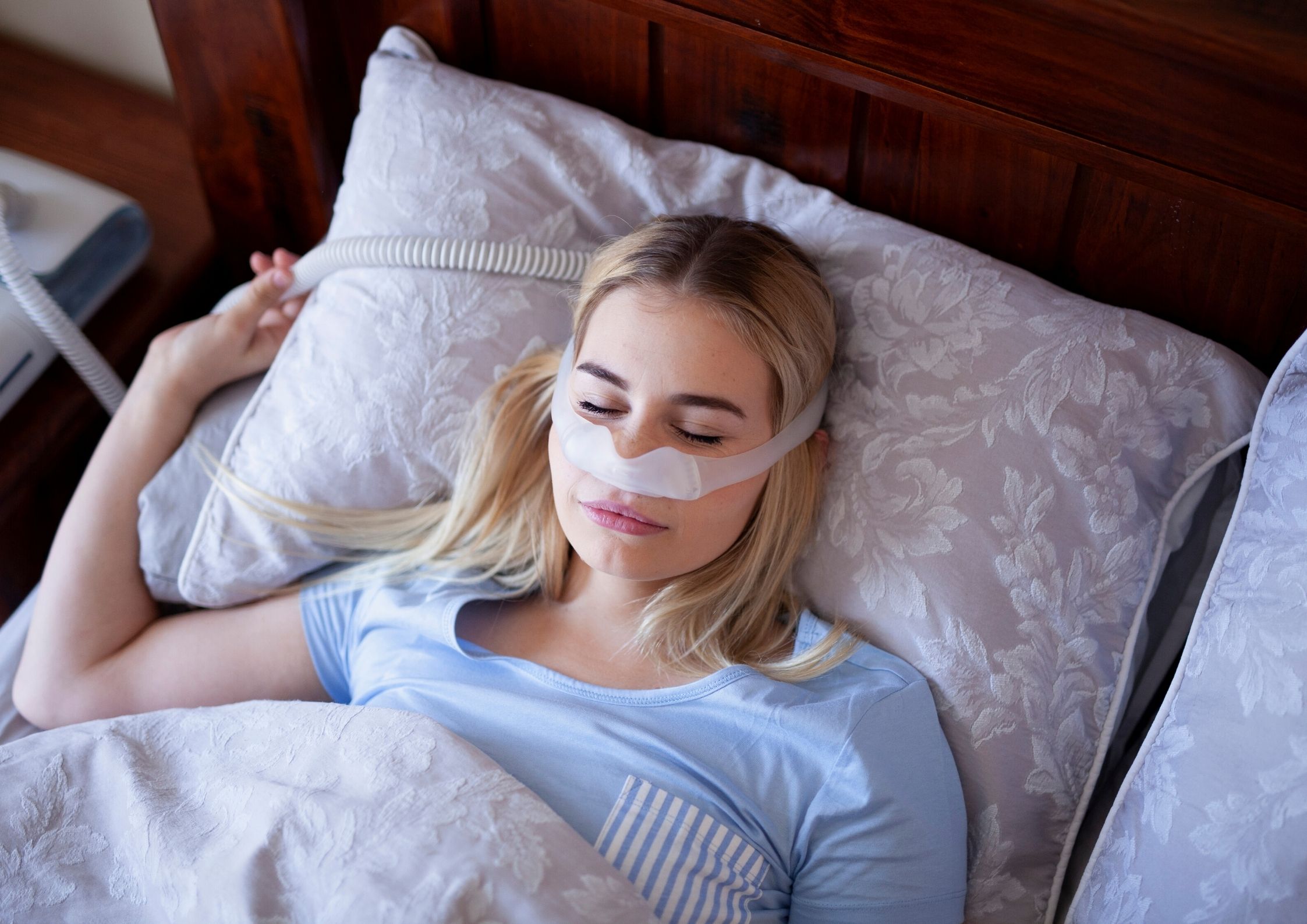Organizing an at home sleep study may be a great way of identifying and treating sleep disorders. There are numerous reasons people may be unable to sleep or find it difficult to fall asleep. It could be due to one’s sleeping composure, sleeping habits, or a biological issue.
Whatever the case may be, an at home sleep study, also known as polysomnography or home sleep apnea test, is an excellent method of identifying any sleep obstruction that may occur while you are asleep. It also prevents you from becoming vulnerable to other diseases.
Want to know more about it? This article has all the details that you need! Read on for more.
What Is an at Home Sleep Study?
An at home sleep study is a sleep test you take from the comfort of your home. Sleep tests are usually performed in a test center or lab, but you can also implement them at home.
There is nothing awkward or scary about performing a sleep test at home. It discerns sleep irregularities from observations such as how you breathe in and out, the level of heartbeats, pulse rates, oxygen levels, and body motion. This systematic observation creates attention to your sleep stages and is likely to single out any hindrance that can limit your comfort.
Not all sleep study tests are accurate, so it is pertinent to consider the accuracy of the sleep study you choose.

Are Home Sleep Studies Accurate?
According to a study on the accuracy of sleep study tests, a sleep test at home is sufficiently accurate for Type 3 sleep and takes respiration, heartbeat rate, and breathing patterns into account.
Compared to the technical methods of lab tests, sleep study tests are affordable and easily accessible to users since they can be performed at home. However, sleep study test kits monitor the user’s breathing rather than the sleep itself. As such, the test study can not observe the internal operations of the user.
An at home sleep study may be inconsistent since the results can be less accurate when dealing with patients that respire through their mouths. Inconsistencies may also occur when individuals have other biological defects in their body and, in other cases, where the test objects are wrongly positioned. Several other factors can lead to inconsistent results for the patient.
Regardless, users can still attain a reliable result. An at home sleep study test can be likened to a pregnancy test stripe. To some extent, they are different from the type of tests made in labs but are highly utilized and convenient for numerous individuals.
Put differently, an at home sleep study test is reasonably accurate and reliable. According to the study mentioned above, at home sleep studies are feasible and precise in identifying sleep disorderliness in stroke patients.
How Do You Do a Sleep Study at Home?
You will most likely have to visit a doctor for a routine checkup when you are not getting enough sleep. An at home sleep study usually starts with a doctor's or a sleeping specialist's recommendation. Allow this qualified person to assess your sleeping pattern or habit and determine what could be wrong.
If required, the health specialist may recommend a sleep apnea test. The doctor may provide it to you or refer you to get it from a licensed retailer. In the latter case, you may ask the personnel at the clinic or shop for instructions on how to set it up.
Tip: For the best and most accurate result, you should do the things listed below on the day of the assessment:
- Avoid napping at noon.
- Avoid consuming caffeine (although drinking a little for breakfast can be exempted).
- Avoid taking sedative pills, syrups, or alcohol.
- Make it known to the health expert any form of medical conditions or medications you're taking when you wish to take the test.
The assessment content and how to set up the tools may slightly differ based on the kind and brand of the sleep study test. However, most sleep study tests come with instructional guides, which can be helpful if you do not clearly understand the instructions from the licensed retailer.

The test comprises a nasal cannula, pulse oximeter, and band, which you should place on your nose, finger, and chest. However, other tests consist of just one-finger equipment connected to a software application on your phone.
Tip: Ensure that you sleep according to your usual sleep routine.
Turn off the test equipment connected to the software application when you wake up. Ensure that you have disconnected it successfully, then move on with your regular routines.
Present your test result to a lab center or health technician for evaluation. You can also assess the result to decode it next time easily.
Once the evaluation is complete, the doctor can safely diagnose you and recommend the best solutions or treatments for your sleep disorder. The treatment may be drugs, correctional instrument, or sleeping habits prevention.
A home sleep study is very convenient because it does not disturb one’s daily routine. All you have to do is set up the various instruments for the sleep study test and let it observe your sleeping habits.
How Many Hours of Sleep Do You Need for a Home Sleep Study?
The appropriate and recommended hours of rest time for a sleep study test is four (4) hours.
However, there are instances when a user can sleep for less than four hours. In such a case, the test device should be capable of capturing the requisite information needed to assess the diagnosis that emanates from the result. It’s always a good idea to sleep as long as you can when doing an at home sleep study test.
In cases where you have insomnia or other biological ailments that could prevent you from sleeping, you can report to your doctor and request medicine that will help you sleep and not interfere with your sleep assessment. An example of this is Ambien (zolpidem).
To be on the safer side, try getting some sleep for a few hours or getting your doctor's recommended sleep aid.
Having a hard time falling asleep? Why not try to change your current mattress? Check out our review of the aloe vera mattress and see why it's getting popular these days!
How Much Does an at Home Sleep Study Cost?
The cost of a sleep apnea test at home varies greatly and can be based on the test kit's manufacturer. On average, an at home sleep study cost about $150 to $500.
However, since you will be doing the sleep assessment for one night, it is cheaper than a lab test.
The price can be high for some individuals. Health insurance may cover a significant portion of its fee, leaving the user with little out-of-pocket expense. Your insurance company may cover the entire cost in some cases. So check your insurance company's coverage before paying.
The process of applying for health insurance varies widely. Some patients may have to undergo rigorous paperwork before their insurance is approved, whereas others may easily pull out their cards and have all transactions sorted seamlessly.
In essence, however, you should know how your insurance company works to avoid delays.
Note: You might experience some additional charges. For example, when the total incurred fee does not meet the deductible amount from the insurance company, you may have to incur the outstanding payment.

Final Words
Sleeping disorderliness may arise in the form of sleep apnea, insomnia, narcolepsy, and other ways. Conducting a sleep study test at home makes a huge difference and can be an economical and convenient process of getting yourself checked at a clinic or hospital. If diagnosed with sleep apnea, a health specialist may recommend continuous positive airway pressure (CPAP), an effective solution to your disorder.
Keep in mind that there are times when you will have to do an at home sleep study test repeatedly to achieve more accurate results. Also, there are times when you will have to dismiss a home sleep study test in place of a lab test.
However, situations like this are usually called for when the disorderliness persists even after sleep apnea treatment. In such cases, apnea is not usually the problem because there are other apparent sleep disorders. In other words, some sleep disorders do not stem from a person's breathing pattern.
Lab tests are an excellent alternative to sleep study tests but can take up lots of scrutiny and rigor. For example, a lab test may require you to sleep within the clinic or hospital premise under the observation of staff or personnel. You would have to worry about the clinic’s location, distance, comfortability, and cost. This is not the case when using an at home sleep study test.
The only disadvantage of doing a sleep apnea test at home is that the results may sometimes be inaccurate, especially if the test tools are not appropriately positioned. The result may also be false if the disorderliness goes beyond what the sleep study test can detect. In which case, you may need to get a further check up from a physician.
As a rule of thumb, you should consult a health specialist before using an at home sleep study test, when using it, and after using it.
